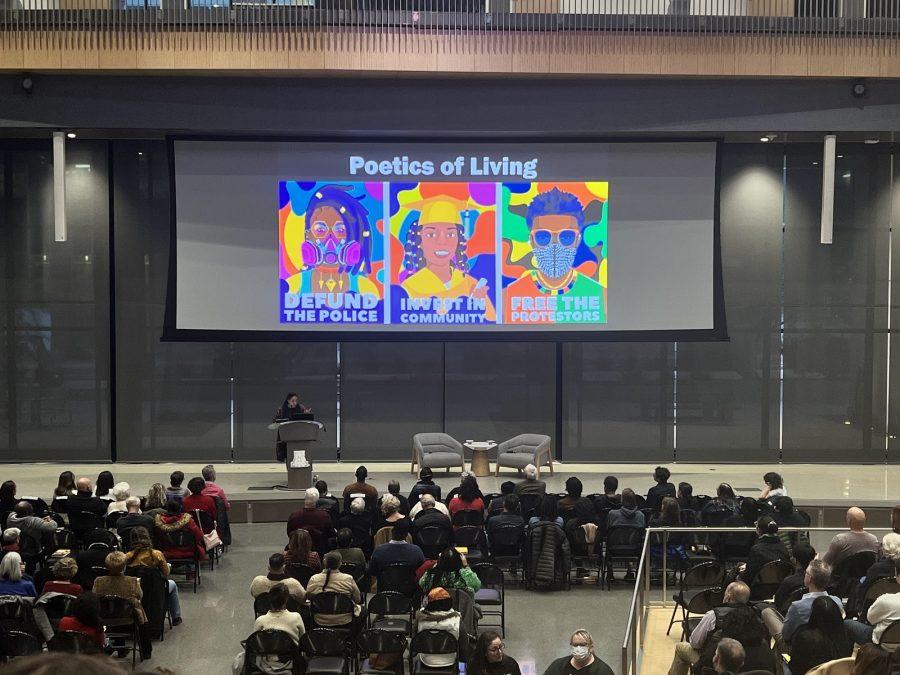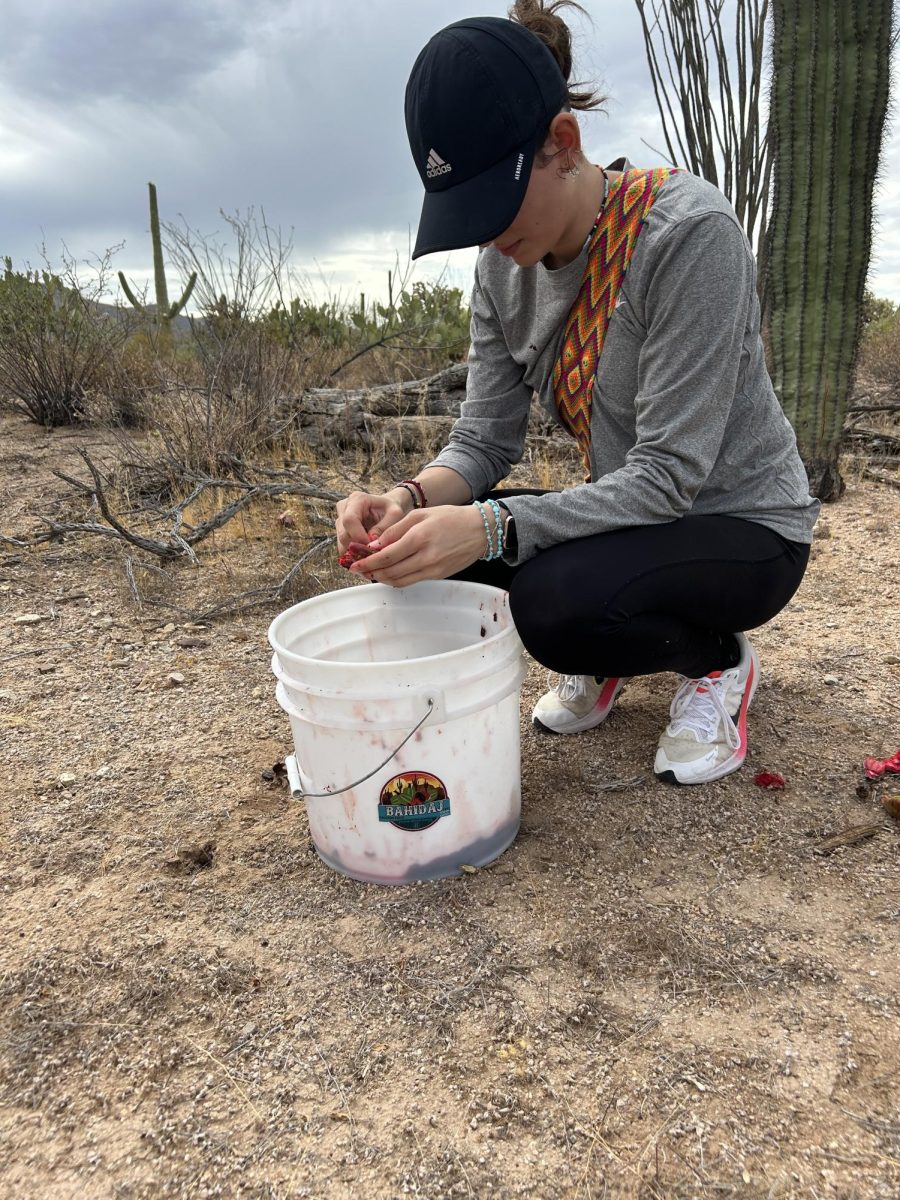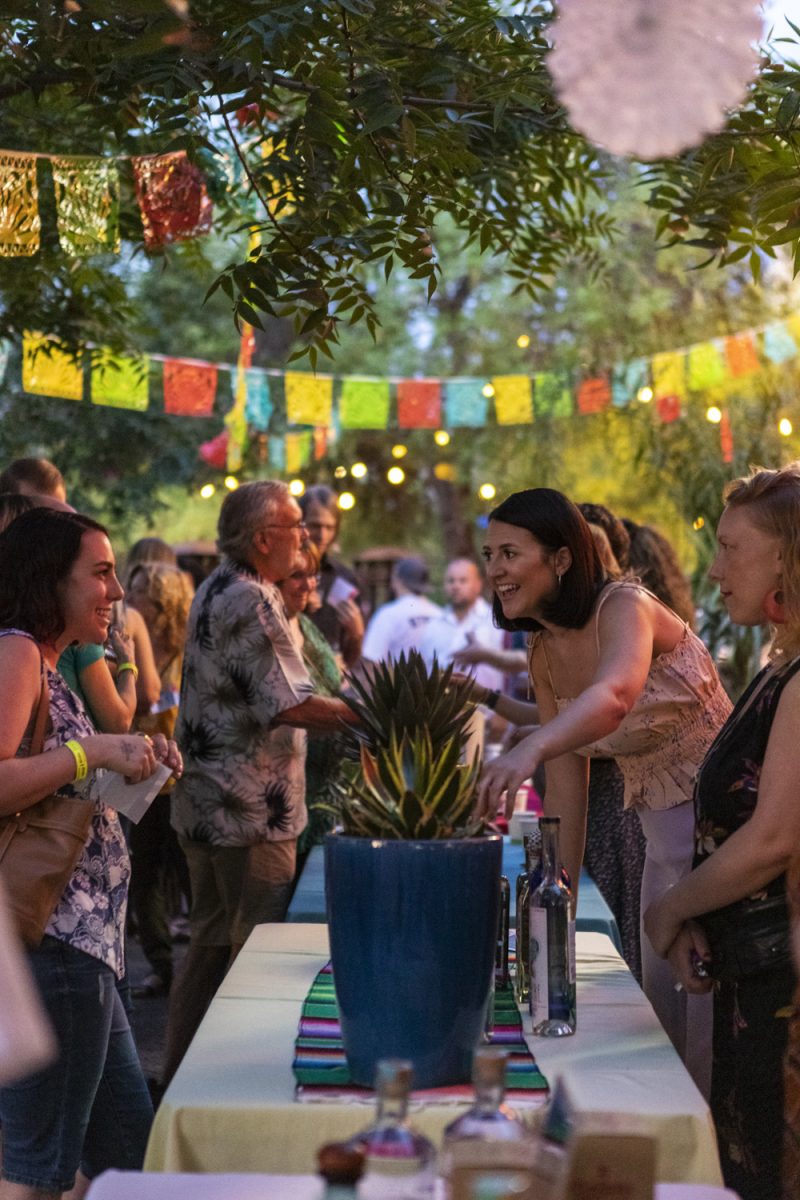The 2022-23 Black Faculty Speaker Series brought in speaker Ruha Benjamin on Wednesday, Jan. 25, for a keynote called “Out of This World: Afrofuturist Expressions across Science, Art, Tech and Design.”
The large turnout included University of Arizona students, professors and activists seeking a stronger voice for the Black community.
“For us, it’s amplifying Black women’s voices,” UA senior Faith Johnson said. “I love how she is specific and it doesn’t feel as if she has to expand. It’s that gatekeeping that we appreciate, that we love hearing from powerful Black women leaders that are telling us it’s okay for us to think of Afrofuturism and to stay within us. Let’s figure it out before we can help each other.”
Benjamin is a sociologist and a professor of African American studies at Princeton University. She is the founding director of the Ida B. Wells Just Data Lab and an author of four books: “Viral Justice,” “Race After Technology,” “Captivating Technology” and “People’s Science.”
Her newest book “Viral Justice: How We Grow the World We Want” was the focal point of the event. Benjamin explained how she gained the inspiration to write it. The “anti-Black police violence movement” and COVID-19 hardships required her to regain focus on the appreciation of small, and sometimes unnoticed, actions people were taking to gain back humanity.
“Viral Justice orients us differently towards small-scale, often localized actions,” Benjamin said. “Witness how an idea or action that sprouts in one place may be adopted, adapted and diffused elsewhere.”
The statement for the speaker series reads: “Afrofuturism’s practitioners blend imagination, research, experimentation, and Black ancestral knowledge to invent worlds that transcend our present condition and fuel new possibilities for a more just and sustainable planet.”
“I think Afrofuturism means education, freedom; freedom through education especially,” said UA senior McKenzie Mason. “Black women have their own set of knowledge that no one else can even relate to. It just makes us different from everyone and not in a bad way, not in a way that’s less than or anything.”
Following her keynote address, Benjamin received two standing ovations for her colorful storytelling and innovative perspective for justice. The audience and faculty members were able to ask questions about her other works, academic interests and get their books signed with personal messages by the author.
Faculty Affairs and the Office of the President sponsored the event. Some co-sponsors and collaborators included: Racial Justice Studio – Arizona Arts, BIO5 Institute, the Beyond Juneteenth Committee and the Center for Digital Humanities.
The series features one more speaker to round out the Black Faculty Speaker Series, providing even more perspective into Afrofuturism.
To learn more information about future events: facultyaffairs.arizona.edu/equity/our-work/black-faculty-speaker-series.
*Chloe Hiller is a student studying at the University of Arizona School of Journalism taking the JOUR 306: Advanced Reporting class.
Follow the Daily Wildcat on Twitter















